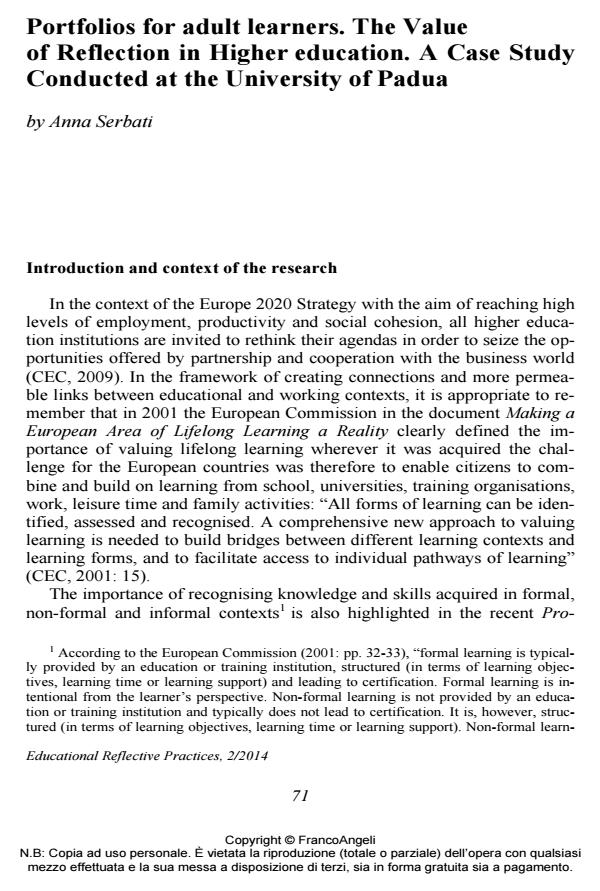Portfolios for adult learners. The Value of Reflection in Higher education. A Case Study Conducted at the University of Padua
Titolo Rivista EDUCATIONAL REFLECTIVE PRACTICES
Autori/Curatori Anna Serbati
Anno di pubblicazione 2015 Fascicolo 2014/2
Lingua Inglese Numero pagine 16 P. 71-86 Dimensione file 339 KB
DOI 10.3280/ERP2014-002005
Il DOI è il codice a barre della proprietà intellettuale: per saperne di più
clicca qui
Qui sotto puoi vedere in anteprima la prima pagina di questo articolo.
Se questo articolo ti interessa, lo puoi acquistare (e scaricare in formato pdf) seguendo le facili indicazioni per acquistare il download credit. Acquista Download Credits per scaricare questo Articolo in formato PDF

FrancoAngeli è membro della Publishers International Linking Association, Inc (PILA), associazione indipendente e non profit per facilitare (attraverso i servizi tecnologici implementati da CrossRef.org) l’accesso degli studiosi ai contenuti digitali nelle pubblicazioni professionali e scientifiche.
This paper presents a study carried out at the University of Padova with the aim to promote an active process of recognition of competences that adults enrolled in university degrees have already acquired within non formal and informal contexts. During the research 44 working students completed a learning outcomes portfolio in order to make their competences gained within past experiences explicit and comparable with the expected learning outcomes and therefore to tailor their educational careers. The study, through a mix-method approach, investigated the educational and guidance dimensions of the portfolio construction within a guided process for the development of competences awareness obtained by the reflection during and after the action. Results from interviews to adult students, teachers evaluators and tutor/advisers, showed that the autobiographic reflective process has the transformative power to bring out moments or past aspects and create new connections between these aspects, generating new coherences and perspectives for the future professional and personal life
Anna Serbati, Portfolios for adult learners. The Value of Reflection in Higher education. A Case Study Conducted at the University of Padua in "EDUCATIONAL REFLECTIVE PRACTICES" 2/2014, pp 71-86, DOI: 10.3280/ERP2014-002005